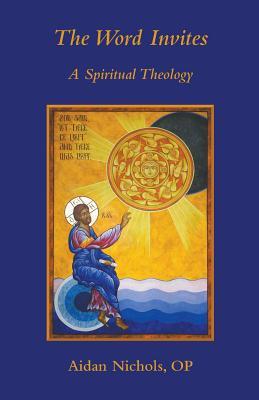This accessible little book is a study of spiritual theology, and so a reflection on the spiritual life as found in Christianity. Christian spirituality embodies in personal living the biblical revelation received in the Church of the Fathers and transmitted to its successors in every age. Like everything else in Christian doctrine and practice, Christian spirituality depends on Scripture and Tradition--the two intrinsically inter-related ways in which that revelation is communicated. Using a fusion of sources--Catholic and Orthodox, Latin and Byzantine--Aidan Nichols breaks open Spiritual Theology through eight essential themes: the Word of God as Source; the Liturgy as the Context; Meditation and contemplation; Principles of Asceticism; Asceticism: monastic, lay, and 'pastoral'; Purification; Illumination; Union. Christian spirituality is biblical in its source, it is liturgical in its context, it is ascetical in its development, and it is mystical in its outcome. 'Mystical' is a strong word, but the Dominican school does not accept the opinion that this final issue of spirituality is extra-ordinary--in the words of Rginald Garrigou-Lagrange, theologically speaking it is 'eminent, but normal'. These four adjectives--biblical, liturgical, ascetical and mystical--explain the structure of this present book and its content too.

This accessible little book is a study of spiritual theology, and so a reflection on the spiritual life as found in Christianity. Christian spirituality embodies in personal living the biblical revelation received in the Church of the Fathers and transmitted to its successors in every age. Like everything else in Christian doctrine and practice, Christian spirituality depends on Scripture and Tradition--the two intrinsically inter-related ways in which that revelation is communicated. Using a fusion of sources--Catholic and Orthodox, Latin and Byzantine--Aidan Nichols breaks open Spiritual Theology through eight essential themes: the Word of God as Source; the Liturgy as the Context; Meditation and contemplation; Principles of Asceticism; Asceticism: monastic, lay, and 'pastoral'; Purification; Illumination; Union. Christian spirituality is biblical in its source, it is liturgical in its context, it is ascetical in its development, and it is mystical in its outcome. 'Mystical' is a strong word, but the Dominican school does not accept the opinion that this final issue of spirituality is extra-ordinary--in the words of Rginald Garrigou-Lagrange, theologically speaking it is 'eminent, but normal'. These four adjectives--biblical, liturgical, ascetical and mystical--explain the structure of this present book and its content too.